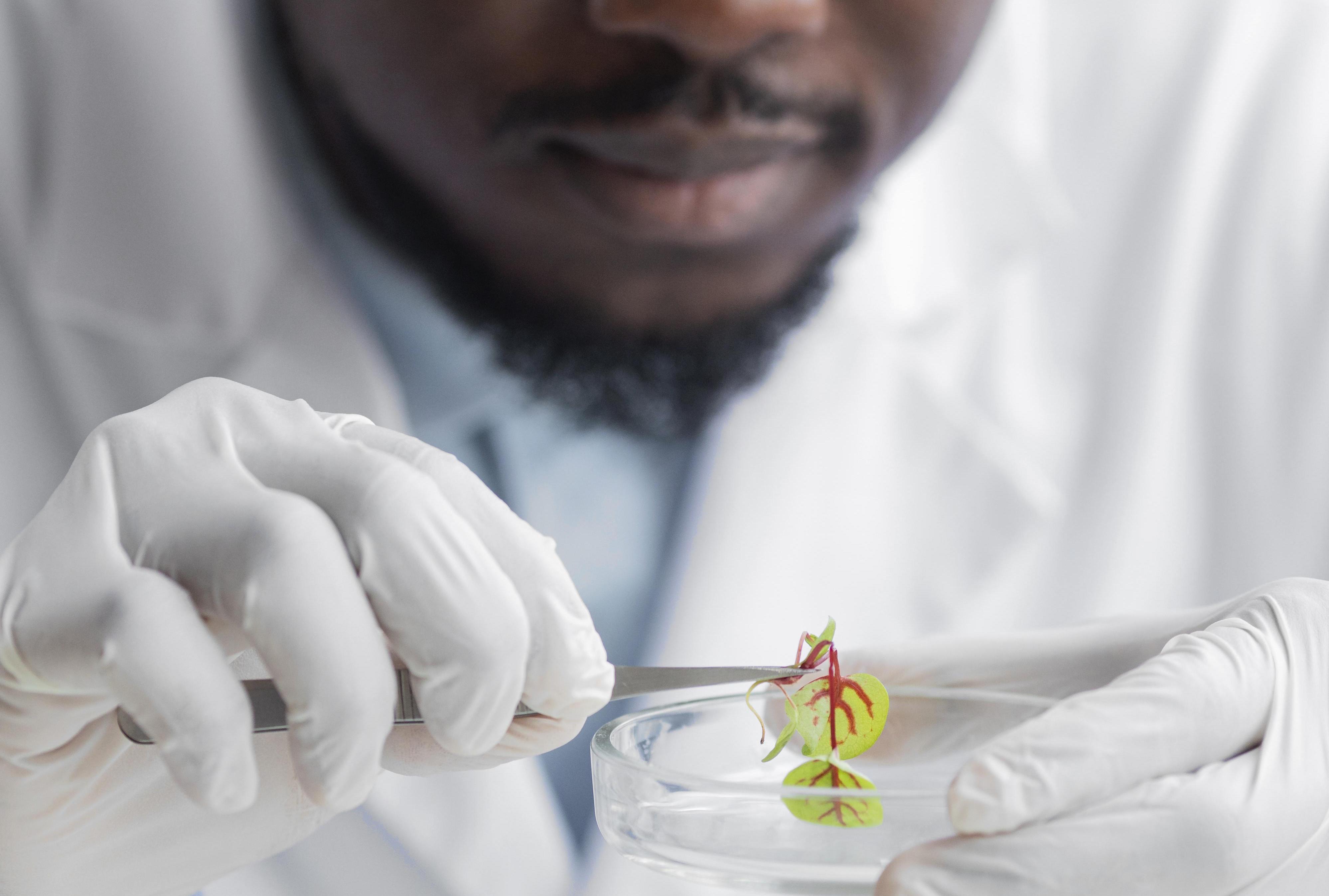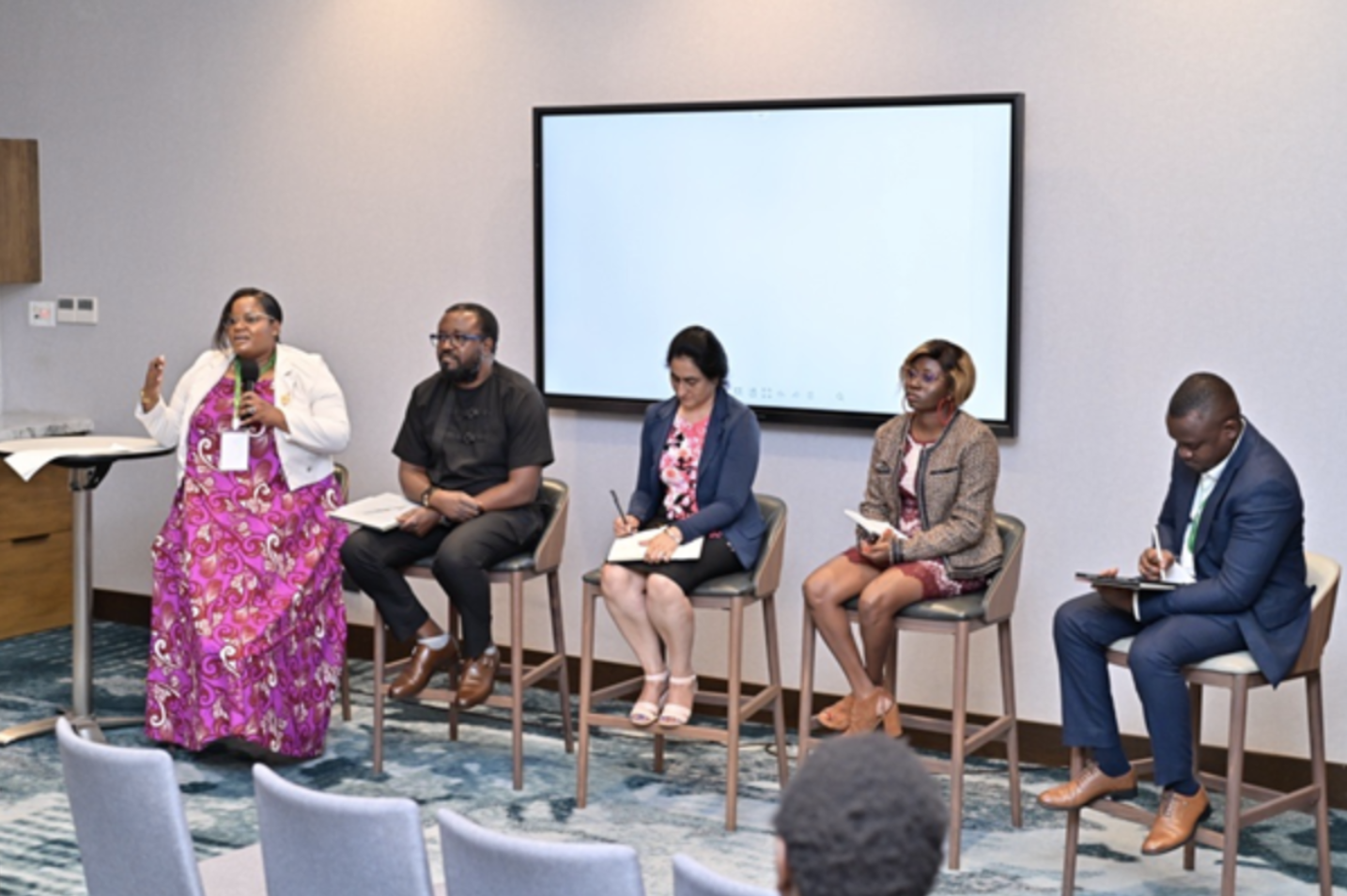
Impact Stories
Harnessing genomics data for improving Africa's biodiversity and agriculture
Wednesday, April 19, 2023

The Science for Africa Foundation (SFA Foundation) and the African BioGenome Project (AfricaBP), recently announced an alliance, the Alliance for Biodiversity Genomics in Africa, to advance scientific approaches to safeguard Africa’s biodiversity through genomics. In this Q&A, Dr ThankGod Echezona Ebenezer, Founder of the African BioGenome Project and a Bioinformatician at the European Bioinformatics Institute (EMBL-EBI), UK, explains why this partnership is important for Africa.
What is AfricaBP and why was it created?
The AfricaBP is a coordinated pan-African effort created in 2019 to build capacity (and infrastructure) to generate, analyse and deploy genomics data for the improvement and sustainable use of biodiversity and agriculture. AfricaBP is a community of practice made up of early career African scientists, established scientists, academics, research institutes, and industry partners whose members and partners currently span 33 countries from Africa, Europe, Southeast Asia and America. AfricaBP is an affiliated project partner to the Earth BioGenome Project.
In early 2022, we reported in the AfricaBP position paper (Ebenezer, et al., 2022) that fewer African endemic species have been sequenced and those that have been sequenced have happened outside Africa. Each time a species is sequenced outside Africa, the continent loses the knowledge and benefits associated with it, such as sequencing capacities, research capacities, biological knowledge of the organism in question, and other by-products that could result in economic returns such as patents. AfricaBP promotes in-country and on-the-ground sequencing to better train and equip African scientists and institutions.
Why the partnership with the SFA Foundation?
AfricaBP currently has members and institutions from more than 30 African countries whom it aims to work with to safeguard their biodiversity by linking such efforts with their national science agenda. The SFA Foundation and AfricaBP have come together to form this Alliance for Biodiversity Genomics in Africa, which enables AfricaBP to become a programme of the SFA Foundation. As AfricaBP evolves, there is a need to separate its administration, coordination, fundraising and policy engagement functions from its scientific implementation functions which SFA Foundation can support. AfricaBP scientists will deliver the scientific objectives. AfricaBP has currently gained wide visibility and engagements at the United Nations, Food and Agriculture Organisation, UNESCO, African Union, Illumina, PacBio, Inqaba Biotec, MGI-Tech, and US-Africa Leaders' Summit and the SFA Foundation will in the future coordinate such multi-organisation partnerships using its expertise and experience.
What will be the priorities of the partnership?
Once onboarded into the SFA Foundation, the AfricaBP will, in collaboration with the University of South Africa (UNISA), recruit a Biodiversity Genomics Chair for UNISA who will initially be funded by UNISA for two to three years before the SFA Foundation secures long-term funding. Another priority will be to organise the Annual African Congress on Biodiversity Genomics, which will be first held in 2023 and will gather scientists, funders and policymakers to discuss ways of safeguarding Africa’s biodiversity through genomics
Who will AfricaBP benefit and why?
It will benefit: Africa’s biodiversity, which is the second most diverse region in the world, early career scientists in African academic and national institutions working on plants, animals, fungi, and protists; farmers and biodiversity conservation centres in Africa who are constantly looking to implement genetics- or genomics-based technologies to make informed farming and conservation decisions. Additionally, most African institutions don’t readily have the necessary information required to set up under- or post- graduate courses and research programmes in biodiversity genomics, which is an area that the AfricaBP can serve.
What will be the future impact of AfricaBP?
There are 20 goals in the African Union Agenda 2063. Three of these goals aim to ensure increased agricultural productivity, a blue economy, and an environmentally sustainable economy. While these goals aim to ensure improved biological diversity, there isn’t a large-scale effort across Africa to factor in genetic diversity which is required to achieve these goals at the molecular level. AfricaBP presents the opportunity to make this happen.
Africa currently lacks the critical mass of scientists required to leap-frog the continent into the next frontier of life science: precision medicine, precision agriculture, and precision biodiversity conservation. The majority of the progress in this space has focused heavily on precision medicine thanks to the H3Africa initiative. However, COVID-19 has taught us that we should pay equal attention to both human health and biodiversity health. There is a need for Africa to take the lead in protecting its own biodiversity health, which will require creating an operating ecosystem for African researchers and scientists to prosper and become globally competitive in this biodiversity genomics. AfricaBP presents the opportunity to make this happen.
In December 2022, the Convention on Biological Diversity, the United Nations' arm dealing with issues of biodiversity, adopted the Post-2020 Global Biodiversity Framework, a set of principles aimed to safeguard at least 90 % of the world's global biodiversity by 2030. While it is not yet legally binding (but may soon be in the next few years) countries around the world, including African countries, have signed up to this. At the moment, most African countries lack the instruments and capacities to maximise the benefits that the Post-2020 Global Biodiversity Framework presents. The AfricaBP presents the opportunity for African countries to build the required capacities to benefit from this framework.



